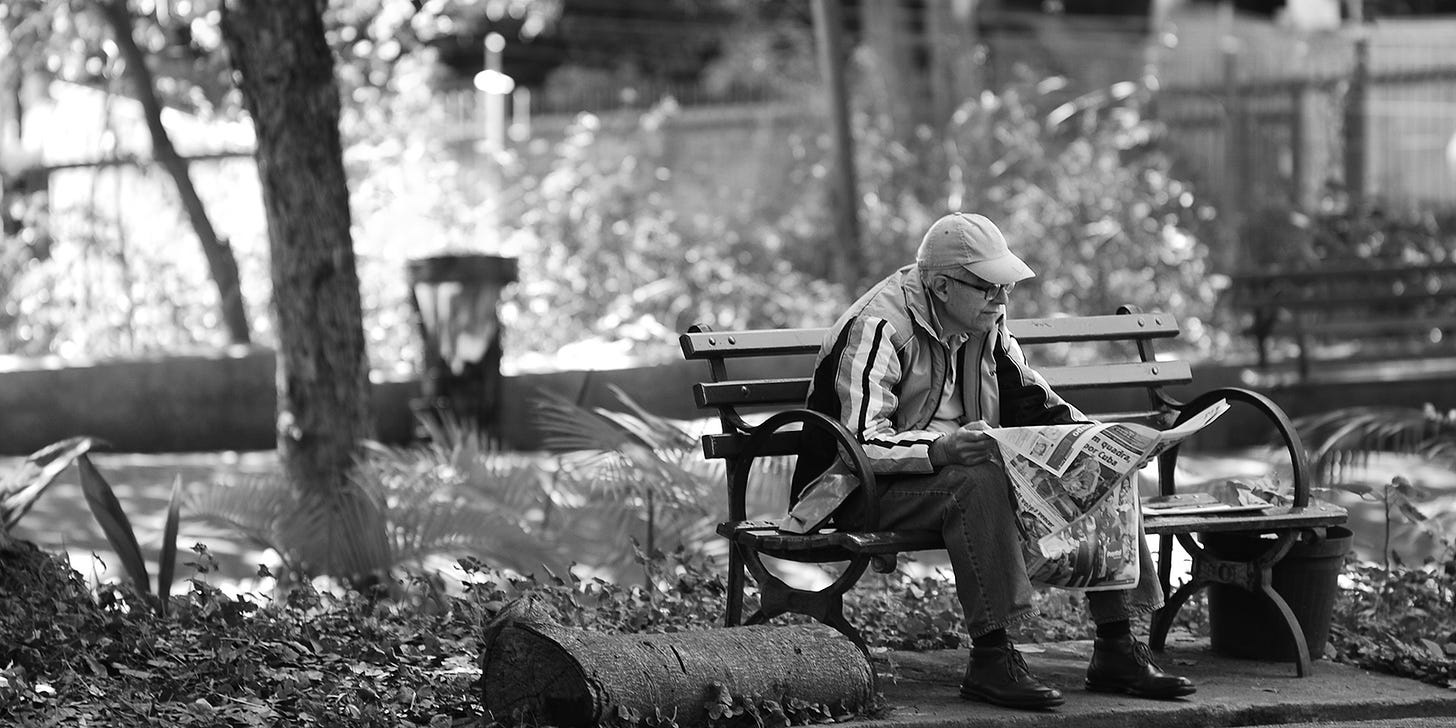Coffee News Roundup: Week Ending April 8th
This week, Starbucks woos restless workers with NFTs for some reason, Olympia Coffee goes another direction by becoming a certified living wage employer, & coffee gets help from the birds and the bees
Hello and welcome to another Coffee News Roundup. Let’s see what’s been going on this week.
Starbucks CEO Announces NFTs To Workers Amid Union Drive - via Vice
You know what Starbucks workers, underpaid and undervalued and finally organizing for a better deal amidst rising living costs, climate breakdown, and a still-ongoing pandemic, really need? Company-branded non-fungible tokens, obviously.
That’s what Howard Schultz thinks, anyway. The returning CEO and sometime failed presidential candidate held a town hall meeting earlier this week—during which he also said the company was “being assaulted in many ways by the threat of unionization”—where he teased the launch of “digital innovation through NFTs” according to a press release.
Lest we forget, NFTs and cryptocurrencies more generally are hugely prone to fraud, have been described as straight-up Ponzi schemes, and have worrying environmental ramifications. There are also signs that the bubble is already bursting.
Which means it’s the perfect time for Starbucks to get in on the action. “So, here's the secret,” Schultz told the audience, “sometime before the end of this calendar year, we are going to be in the NFT business."
What this will do to quell worker unrest is anyone’s guess, but Schultz also announced “a new coffee blend by and for green apron partners”, so maybe he’s banking on the two things in combination.
Olympia Coffee Earns Living Wage Certification For US Workers - via Daily Coffee News
One way to ensure worker loyalty and happiness is simply to pay them properly. Olympia Coffee Roasting Co, based in Olympia, Washington with additional locations in Tacoma and Seattle, has partnered with Living Wage For Us to certify that all employees earn at least what the agency calculates is the baseline wage for their region.
“Olympia Coffee has reached the certification’s top tier, called Plus,” Daily Coffee News reports, “which recognizes employer efforts beyond wages, such as the provision of insurance benefits, extra paid time off, employee training and more.”
This, according to the company, allows for more diverse hiring practices, better staff retention, and improved customer service due to lower turnover.
“From the founding of Olympia Coffee, our goal has been to build a company that improves the quality of life for everyone connected to it,” Olympia Coffee CEO and Co-Owner Oliver Stormshak said in an announcement blog post. “This third-party audit and certification from Living Wage for US clarifies that we are doing this in a real, measurable way for our staff, and it holds us accountable to our mission.”
The new plan complements Olympia’s direct trade sourcing program, launched in 2018, which “promotes transparency, long-term cooperation with farmers and prices that allow for a living wage among all actors in the coffee supply chain, including farm laborers,” according to Daily Coffee News.
Coffee Prices Readjust And Certified Stocks Grow: ICO Report - via Global Coffee Report
The International Coffee Organization’s March report is out, and while the majority of it is very dry, a few things stand out.
First, coffee prices came down last month, or “readjusted” to use Global Coffee Report’s term, falling 7.6% from February—the first time in 17 months that the price has gone down.
Global coffee exports also fell, although certified stocks—coffee kept in exchange-approved warehouses to underpin the commodity market—rose in New York and London. This is another change from February, when stockpiles were depleting and Bloomberg was getting very worried.
Finally, while the projection for coffee production remains the same as the last report, consumption is forecast to grow. This will lead to a 3.1 million bag discrepancy, according to the ICO.
The Secret To Better Coffee? The Birds And The Bees - via The University Of Vermont
A new study from the University of Vermont has found that without the help of birds and bees, coffee production yields would fall by 25%. Researchers wanted to find out how natural systems interacted, as opposed to investigating each system separately and combining the results.
To do this they carried out experiments at 30 farms, using nets and bags to keep birds and bees away from coffee trees in various combinations—the results showed that the lack of pollination and pest control caused yields to drop by a quarter, at a cost of $1066 per hectare.
Researchers found that birds and bees helped improve the quantity but also the quality of coffee yields: “the combined positive effects of birds and bees on fruit set, fruit weight, and fruit uniformity—key factors in quality and price—were greater than their individual effects”, according to the announcement.
“One important reason we measure these contributions is to help protect and conserve the many species that we depend on, and sometimes take for granted," said Natalia Aristizábal, one of the study’s authors. "Birds, bees, and millions of other species support our lives and livelihoods, but face threats like habitat destruction and climate change.”
More Headlines
ICO drafts new International Coffee Agreement
Fairtrade Unveils Living Income Reference Price for Indonesian Coffee
Coffee Sector in Burundi Struggles to Rebound
Roast Magazine Releases Green Coffee Book
Westrock Coffee to Go Public in $1.2 Billion SPAC Deal
The Week In Coffee Unionizing
Ready for another rundown after another busy week? Let’s do it.
Six Starbucks stores in New York voted to unionize, bringing the total to 16 across the country—with more votes imminent. Every location in Ithaca, New York, is now unionized.
Starbucks fired union leader Laila Dalton, just days before her Arizona store was due to receive ballots. A More Perfect Union called the move “an act of retaliation that caps two months of unrelenting harassment against the 19-year-old shift supervisor.”
The company’s firing of a group of activists last month has been deemed illegal by the National Labor Relations Board, which threatened to issue a complaint unless a settlement is reached.
In a sign that things aren’t going great with its anti-union efforts, Starbucks fired its top lawyer—although it rewarded her with an $8 million severance package—while it actively hires crisis communications managers.
In non-Starbucks news, workers at Louisville, Kentucky-based chain Heine Brothers’ Coffee have announced their intent to unionize. They cite low wages and lack of affordable benefits, while the company, which has between 200-300 employees across 18 locations, says that, while it respects its workers’ right to organize, “Heine Brothers is well positioned to address the ideas and concerns of our employees without the involvement of a union.” Because of course.
Is Coffee Good For You?
Coffee has been shown to be effective at treating the symptoms of a form of dyskinesia, rare diseases characterised by sudden, involuntary, sometimes whole-body movements.
Two years ago, French researchers published the case of a young boy with ADCY5-related dyskinesia who was successfully treated with coffee. To confirm their results, they conducted a worldwide retrospective study, gathering data on 30 patients whose dyskinesia was being treated with coffee, and found that 87% reported clear improvements in their symptoms.
“Caffeine reduced the frequency and duration of paroxysmal movement disorders,” the authors report, “but also improved baseline movement disorders and some other motor and nonmotor features, with consistent quality-of-life improvement.”
The authors go on to state that, “considering its remarkable tolerance profile and ease of use, we thus state that caffeine should be considered as a first-line therapeutic option, regardless of age, in all patients with ADCY5-related dyskinesia.”
What To Read
Amazon, Starbucks And The Sparking Of A New American Union Movement by John Logan
Until next week, drink good coffee.






